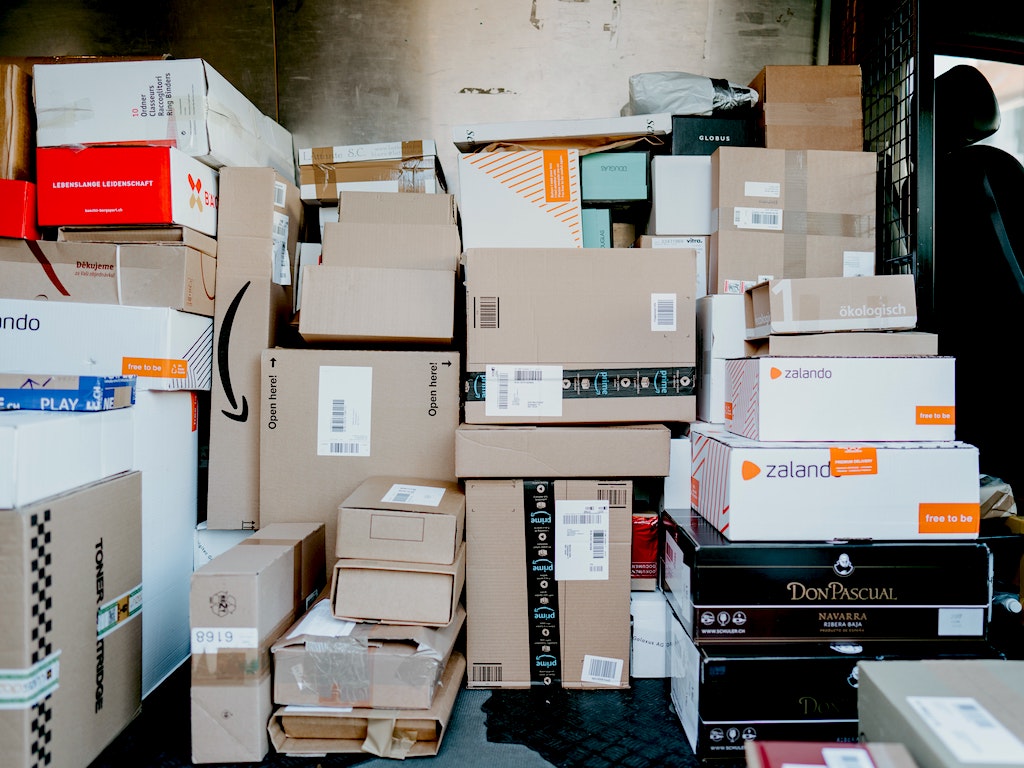3 Mins Read
A new campaign is taking aim at the huge amounts of packaging waste as a result of our online shopping habits. Launched by nonprofit Habits of Waste, the ShipNaked initiative holds e-commerce giants like Amazon and Walmart to account, asking them to do their part by delivering items without extra packaging.
Habits of Waste (HoW), says it’s high time that online shopping giants start unboxing their shipments. In their new campaign, ShipNaked, the organisation spotlights the enormous number of plastic bags, wrappers, tissue paper and cardboard boxes that e-commerce companies use.
Packaging waste is on the rise
We can all agree that all these bits of packaging are unnecessary. Once delivered, the majority of these boxes and bags simply get tossed into a landfill. And with global e-commerce sales continuing to skyrocket amid the pandemic, we’re only going to see our waste crisis get worse.

In fact, we’re ordering so much now that e-retail sales are set to reach US$4.8 trillion by the end of this year. Amazon alone already ships nearly 2 million parcels per day and leaves behind 465 million pounds of plastic packaging waste annually. Every year, we throw away 850 million tons of paper and cardboard—equivalent to 1 billion trees.
HoW says that these figures are only set to rise unless companies change the way they deliver, and that’s the premise of the ShipNaked campaign.
It’s a simple switch
There are many different problems to tackle when it comes to the global waste crisis; there isn’t one single fix. But given the scale of packaging waste from online shopping, ShipNaked believes a significant impact could be made if companies made a simple switch.
For those products that already have their own packaging, just deliver them without any additional boxes or plastic wrap.
“By creating this simple change we will immediately reduce millions of pounds of plastic waste and cardboard waste,” explained the organisation. HoW is now asking consumers to join in by calling, writing or emailing big online retailers like Amazon, Walmart and Target to ShipNaked.
To make it easy, HoW has also created a convenient one-click email to send emails to wasteful e-commerce firms. Another option is to take to social media, like posting an Instagram of a delivery covered in excessive packaging and using the hashtag #ShipNaked.
Sustainable delivery solutions
Meanwhile, startups are now working on creating circular delivery solutions to help cut down on packaging waste for those items that might not come in their own packaging, like apparel or fresh produce.

Read: These 8 circular packaging companies are racing to close the loop
Olive, for instance, is a free platform that lets customers know if an online retailer is partnered up with them. Many brands have already signed up to use the service, including Adidas, Alo, and Steve Madden, who will send out your purchases in reusable cardboard-free shippers made from recycled plastic. Olive also groups up your orders in their warehouses, even if they come from different brands, to help reduce last-mile emissions.
Another startup, Loop, is tackling takeaway food delivery packaging, which accounts for almost half of all ocean plastic waste. Loop has partnered with fast-food giants like McDonald’s and Burger King and even retailer Tesco so consumers can get their groceries in reusable containers, cups, and bags.
Lead image courtesy of Pexels.




